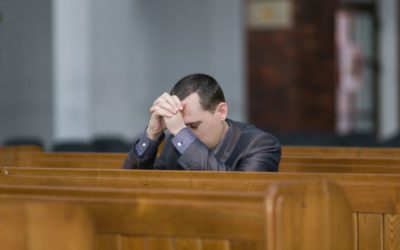1 Corinthians 6:9–11 (NKJV)
9 Do you not know that the unrighteous will not inherit the Kingdom of God? Do not be deceived. Neither fornicators, nor idolaters, nor adulterers, nor homosexuals, nor sodomites,
10 nor thieves, nor covetous, nor drunkards, nor revilers, nor extortioners will inherit the Kingdom of God.
11 And such were some of you. But you were washed, but you were sanctified, but you were justified in the name of the Lord Jesus and by the Spirit of our God.
 The objection from this passage to the believer’s security of salvation is the following: “If you are a born-again believer, but continue to be a fornicator, an adulterer, a thief, or a drunkard, you will not inherit the Kingdom of God, and you will lose your salvation.” First, let’s establish that inheriting the Kingdom is equivalent to being in the Kingdom or being saved in Christ. Some people contend that “inheriting” is different from “entering” the Kingdom. While I agree that there are different degrees of possessing the Kingdom of God here on earth and that sinful deeds decrease our capacity to believe and manifest more of all He has given us, I argue that inheriting the Kingdom of God is the same thing as eternal salvation. Galatians 3:29 and 4:7 show that, once you are a son or a daughter of God, you are also an heir:
The objection from this passage to the believer’s security of salvation is the following: “If you are a born-again believer, but continue to be a fornicator, an adulterer, a thief, or a drunkard, you will not inherit the Kingdom of God, and you will lose your salvation.” First, let’s establish that inheriting the Kingdom is equivalent to being in the Kingdom or being saved in Christ. Some people contend that “inheriting” is different from “entering” the Kingdom. While I agree that there are different degrees of possessing the Kingdom of God here on earth and that sinful deeds decrease our capacity to believe and manifest more of all He has given us, I argue that inheriting the Kingdom of God is the same thing as eternal salvation. Galatians 3:29 and 4:7 show that, once you are a son or a daughter of God, you are also an heir:
Galatians 3:29 (NKJV)
29 And if you are Christ’s, then you are Abraham’s seed, and heirs according to the promise.
Galatians 4:7 (NKJV)
7 Therefore you are no longer a slave but a son, and if a son, then an heir of God through Christ.
Moreover, according to Ephesians 1:11–14, people who believe in Jesus receive the seal of the Holy Spirit at the time of salvation. That seal is a guarantee of their inheritance:
Ephesians 1:11–14 (NKJV)
11 In Him also we have obtained an inheritance, being predestined according to the purpose of Him who works all things according to the counsel of His will,
12 that we who first trusted in Christ should be to the praise of His glory.
13 In Him you also trusted, after you heard the word of truth, the gospel of your salvation; in whom also, having believed, you were sealed with the Holy Spirit of promise,
14 who is the guarantee of our inheritance until the redemption of the purchased possession, to the praise of His glory.
Finally, I will prove that inheriting the Kingdom is equal to entering it by also using the account of the rich young ruler coming to Christ, which is recorded in the first three Gospels: Matthew 19:16–29, Mark 10:17–31, and Luke 18:18–30. All three accounts refer to the same incident and the subject is very clear: ETERNAL LIFE. That is the opening question, which is what each account concludes with. Matthew 19:16 tells us the young ruler asked, “how may I ‘HAVE’ eternal life,” but Mark 10:17 and Luke 18:18 both tell us he asked, “how may I ‘INHERIT’ eternal life.” In response to the man’s question, Jesus Christ talked about ENTERING life in Matthew 19:17. He equated “having” and “inheriting” eternal life with entering it.
Coming back to 1 Corinthians 6:9–11, although Paul addresses believers from the church of Corinth, and although it might seem he suggests some genuine believers will not inherit the Kingdom, he makes a clear distinction between the unrighteous and the saints. Verse 1 of that chapter says: “Dare any of you, having a matter against another, go to law before the unrighteous, and not before the saints?” Then in Verses 2 and 3, he continues by saying the saints will judge the world and angels. Furthermore, in Verse 10, he affirms that the unrighteous will not inherit the Kingdom of God, and, in Verse 11, he concludes: “And such were some of you. But you were washed, you were sanctified, and you were justified in the name of the Lord Jesus and by the Spirit of our God.” Clearly, he doesn’t say Christians will not inherit the Kingdom of God if they still do sinful things. Still, he compares between the behavior of those who are not born again (and have no part in the Kingdom) and the saints. There needs to be a distinction in behavior, and the saints should contrast the unrighteous in their way of life. He is only making a comparison for educational and motivational purposes. Moreover, notice he doesn’t say those people will be disinherited. They will simply never inherit the Kingdom. Finally, almost everywhere in the New Testament, God calls believers in Christ saints, and He relates to them according to their spiritual identity and not according to their deeds that might still be sinful. He never classifies Christians as fornicators, drunkards, adulterers, or thieves, but with the terms righteous, saints, sons, heirs, etc. In conclusion, 1 Corinthians 6:9–11 cannot be used as a valid argument that born-again believers can be disinherited at any moment due to their persistence in unholy living.
Listen / Watch / Download
You can listen to the audio message of this article, watch the video message, or download it in different formats (mp3 / mp4 / pdf) from the following link:
Session 4 (18:38) – The Pursuit of Sanctification (Saved for Eternity) – October 22nd, 2023





